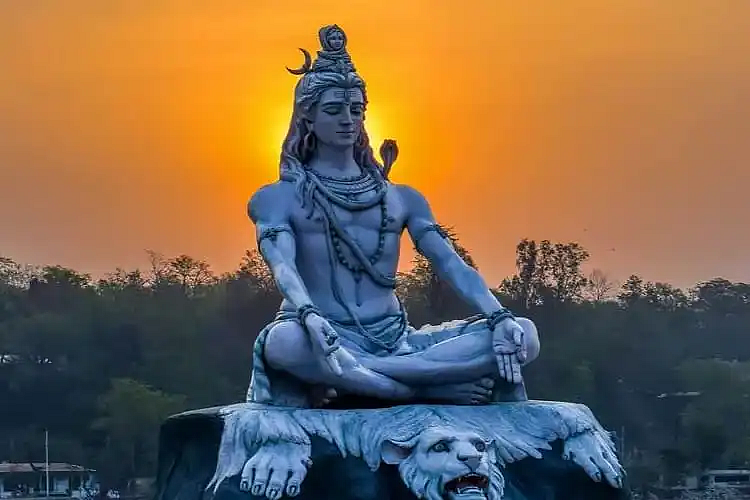The sacred Hindu month known as Shravan begins late July or early August and lasts for about 30 days. During this time, millions of people consider it their opportunity to grow closer to God while renewing their faith. Throughout this month, Hindus practice various rituals while fasting, together with showing devotion specifically to Lord Shiva. Let’s explore why Shravan is so important and how people observe it.
A Time for Devotion
Throughout Indian religious tradition, people view Shravan as sacred because Lord Shiva is linked with this particular month. People have faith that dedicating prayers to Shiva throughout this period leads to spiritual growth and brings peace alongside divine blessings. The temple-goers perform prayers while giving water and milk to the Shiva lingam idol. People engage in these practices to both express their love towards God and make amends for their previous errors. Devotional practices during this month enable people to achieve emotional tranquility and spiritual connection to deity powers.
A tale associated with this month exists in Hindu tradition. Hindu religious narratives indicate that the month of Shravan stems from the mythical story of ocean churning when gods and demons joined forces. The affair produced a poisonous substance which Lord Shiva consumed in order to shield humanity. Through his selfless act of consuming poison, he gained a position as a sacrificial symbol, and people celebrate his generosity during the month of Shravan.
Beyond Ritual: A Gentle Return to Self
Shravan isn’t just about what you do; it's about what you feel. It’s a time to strip away excess, whether that’s food, distractions, or inner clutter. Many people fast or simplify their meals, not as punishment, but as a form of cleansing. Meat, alcohol, and heavy foods are set aside in favor of lighter, purer, sattvic meals. The idea is to lighten the body so the mind can rise.
And the rains help. There’s something about monsoon weather that pulls you inward. The world slows just a little, and you get to listen to your own thoughts more clearly. Journaling, meditating, doing selfless acts (seva), or simply being still, these small moments become doorways to something deeper.
Why It Still Matters
Let’s be honest, modern life rarely gives us space to think, let alone breathe. Shravan offers a quiet rebellion against that. It gives us permission to disconnect from the digital, the material, the noisy, and reconnect with the timeless. It reminds us that stillness is not empty; it’s full of presence.
For younger generations, Shravan can be a bridge to something more meaningful than screens and schedules. For elders, it’s a return to the traditions that once shaped entire lives. And for everyone in between, it can be a much-needed reset.
The beauty of Shravan is that it’s not about perfection. You don’t need to do everything by the book. Even a small change, lighting a diya, skipping one meal, walking mindfully, or just being a little more grateful, can open up space for something sacred.
This month also brings with it celebrations like Nag Panchami, Raksha Bandhan, and Janmashtami, festivals that celebrate protection, connection, and divine love. In many ways, they remind us that spirituality isn’t something distant; it’s woven into our families, our relationships, and our daily choices.
In the end, Shravan isn’t just about rituals; it’s about renewal. It’s a soft invitation to slow down, look inward, and start again. To clear away what no longer serves us. To reconnect with the divine, not as a concept, but as a quiet presence that lives within.
So as the rains fall and the sacred chants rise, maybe this is the moment to step into Shravan not just with tradition, but with heart. Because in the stillness, in the simplicity, lies the kind of peace we often forget we’re looking for.
Follow 해외카지노 Experiences:
| | |















